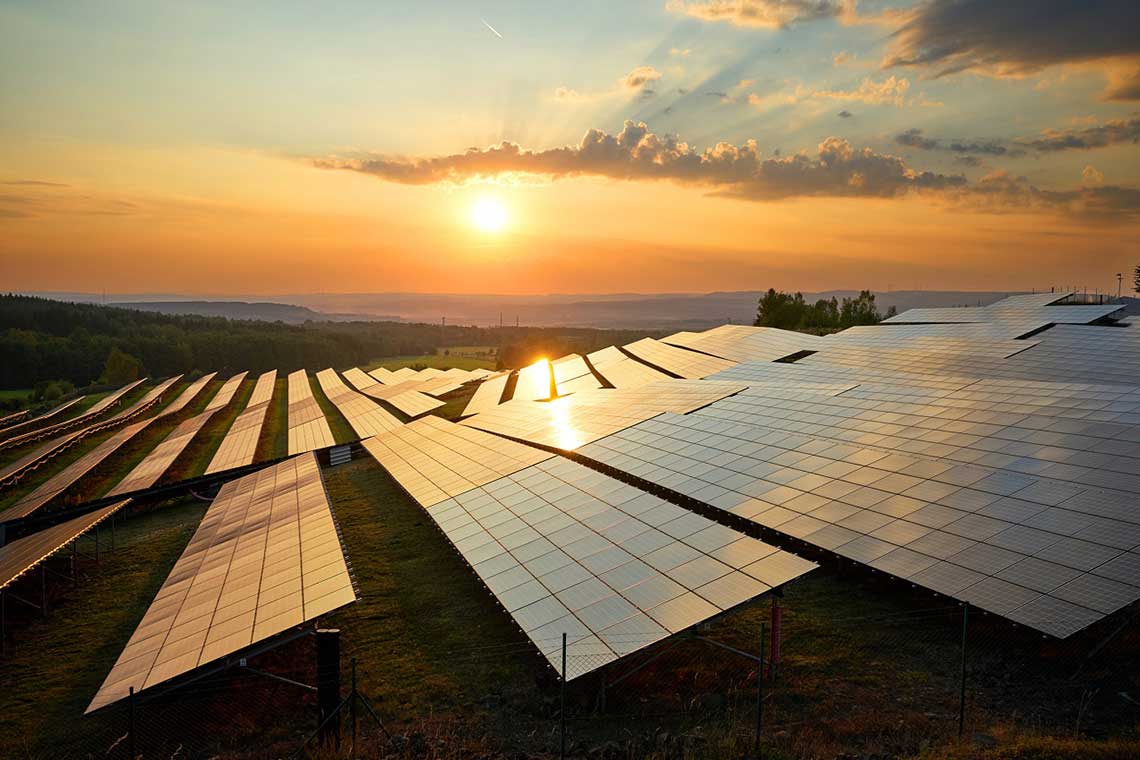
Dieter Helm has recommended that feed-in tariffs and Contracts for Difference auctions be phased out and merged into a single, unified Equivalent Firm Power (EFP) auction to better reflect costs associated with intermittency.
The proposal, which is likely to prove contentious, is included within the academic’s eagerly anticipated cost of energy review which also includes specific mention of the “excitement” surrounding next-generation solar generators.
Helm’s review was published this afternoon, detailing his considerations that households and businesses had not been able to fully benefit from the rapid decrease in costs associated with renewables.
This, Helm said, had been a result of legacy costs associated with ROCs, FiTs and CfD awards used to stimulate investment in low carbon generation.
Helm now wants costs associated with these supports to be ringfenced in a separate bank and reflected separately on household bills, with future support mechanisms to stem from a unified EFP auction which he argued would better reflect the intermittency or variability of some generation profiles.
Solar, for instance, is granted a load factor of 17% by Helm, allowing him to conclude that the technology had an equivalent firm power capacity of around 2GW as of 2016.
Within the report Helm argues that renewables, particularly solar and onshore wind, have not borne the whole system costs associated with their intermittency. He does however also note that fossil fuel generators have not had the cost of their carbon adjustment applied, relating to what he decries as an unlevel playing field.
Rather than explicit support, renewables campaigners and lobby groups have frequently attempted to point to government that the playing field is rarely fair for renewables, and Helm has attempted to lay this bare in his review.
His other principle recommendation to government is to put into place a universal carbon price on a common basis across the whole economy. That price would then vary to meet legislated carbon targets and be “significantly lower” than the cost of current interventions in the energy market.
Early response to the review and its findings have been mixed. Dustin Benton, policy director at think-tank Green Alliance, said the 67 recommendations laid out by Helm stood to be “so broad” that the concern was government would merely “cherry pick the bits it prefers”.
“Green Alliance is calling on the government to adopt Professor Helm's call for significant new regulation for energy efficiency and to separate 'legacy' nuclear and renewables costs from decisions on future bills,” Benton added.
James Court, head of policy and external affairs at the Renewable Energy Association, meanwhile agreed with Helm that it was time for wide policy reform but indicated the review underplayed the energy transition in the UK.
“This report hints at the evolution of the industry, but perhaps doesn’t fully recognise the fundamental shift that is happening from centralised and inflexible generation to a smarter, more connected and decentralised energy system, and the policy framework needed to make that happen,” he said.
Helm is, however, markedly upbeat about the potential for next-generation solar technologies to play a pivotal role in future decarbonisation.
Helm speaks of “radical breakthroughs” in new materials that have changed the face of generation and suggested that next-generation solar presented “exciting new opportunities”, the speed and success of development of which could be “core to industrial strategy”.
“R&D brings the promise of new and much more efficient renewable-generation vintages. The most exciting of these probably lie with solar (although there will be surprises and other options should be included). There is much science to develop – particularly in capturing more, and more efficiently, parts of the light spectrum – and a host of new materials and technologies for converting the captured solar energy into electricity and distributing it. This, in turn, holds out hope not just for low-carbon electricity but the greater management of heat too,” Helm writes.
However the Solar Trade Association has dismissed Helm's mentions of next-generation solar and R&D, suggesting that they are an “unfortunate distraction” from key suggestions within the review.
The STA has also insisted that more details will need to be revealed regarding the EFP auctions – particularly in relation to the costs associated with technology intermittency – before they can be considered.
“We need to look into his auction proposals in more detail, but it is obviously cheaper and more efficient for renewables variability to be handled at a systems level rather than on a plant by plant basis. Furthermore the cost of variability depends very much on the surrounding system, which is in flux. We are also not clear how auctions would enable a world where consumers, including households and businesses, can play their own part in the energy market through on-site generation, storage and demand-side response,” the association's head of policy Chris Hewett said.
In a statement issued alongside the review, BEIS secretary Greg Clark welcomed its findings.
“We are already taking significant steps to upgrade our energy infrastructure as part of the Industrial Strategy and have published draft legislation to cap poor value energy tariffs helping millions of consumers across Britain.
“I am grateful to Professor Helm for his forensic examination. We will now carefully consider his findings,” he said.

